All Stories
-
 Health & Medicine
Health & MedicineWhat not to do when your kid tells a lie
We teach children that lying is naughty, but it’s actually a sign of good brain development.
-
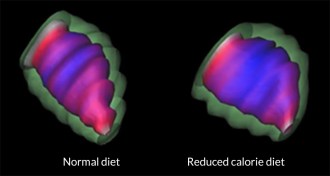 Health & Medicine
Health & MedicinePoor diet in pregnancy, poor heart health for infants
Moms who eat too little during pregnancy could have babies with heart risks.
By Laura Beil -
 Climate
ClimateSay hola to La Niña
La Niña, El Niño’s meteorological sister, has officially taken over and could alter weather patterns throughout the world this winter.
-
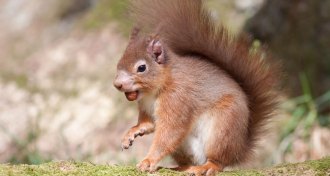 Life
LifeBritish red squirrels serve as leprosy reservoir
Red squirrels in the British Isles can harbor the bacteria that cause leprosy.
-
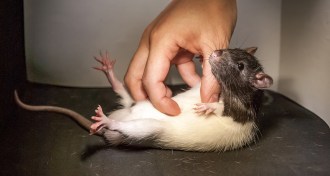 Neuroscience
NeuroscienceGiggling rats help reveal how brain creates joy
Rats relish a good tickle, which activates nerve cells in a part of the brain that detects touch.
-
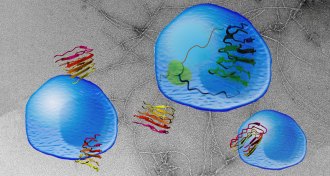 Life
LifeProtein mobs kill cells that most need those proteins to survive
A protein engineered to aggregate gives clues about how clumpy proteins kill brain cells.
-
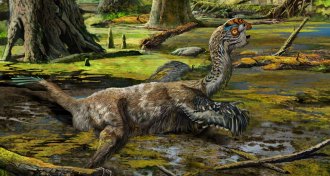 Paleontology
PaleontologyDragon dinosaur met a muddy end
‘Mud dragon’ fossil discovered in China suggests that dinosaurs’ last days were an active time of evolution.
By Meghan Rosen -
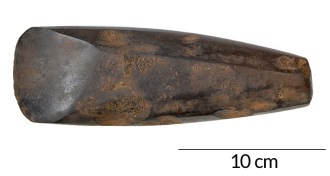 Archaeology
ArchaeologyStone adze points to ancient burial rituals in Ireland
A polished stone tool discovered in Ireland’s earliest known gravesite helps scientists revive an ancient burial ceremony.
By Bruce Bower -
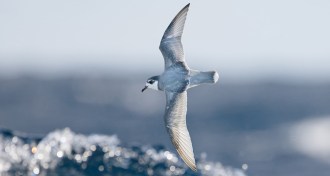 Environment
EnvironmentOcean plastic emits chemical that may trick seabirds into eating trash
Some seabirds might be eating plastic because it emits a chemical that smells like food.
-
 Environment
EnvironmentOcean plastic emits chemical that tricks seabirds into eating trash
Some seabirds might be eating plastic because it emits a chemical that smells like food.
-
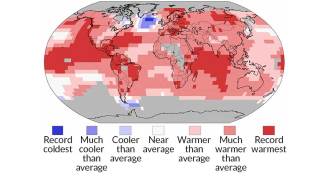 Climate
ClimateIf you thought 2015 was hot, just wait
The record-setting global temperatures seen in 2015 could be the “new normal” as soon as the 2020s.
-
 Astronomy
AstronomyYoung planets carve rings and spirals in the gas around their suns
New telescope images show rings and spiral arms in disks encircling young stars, suggesting the presence of actively growing planets.